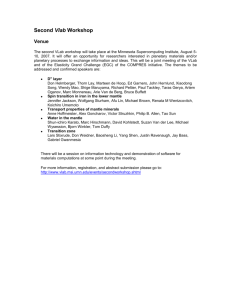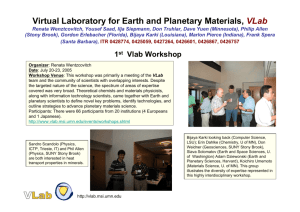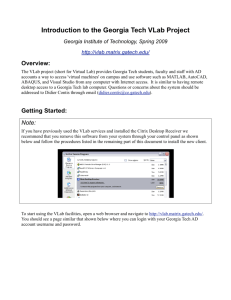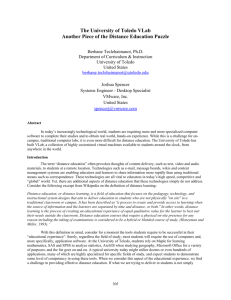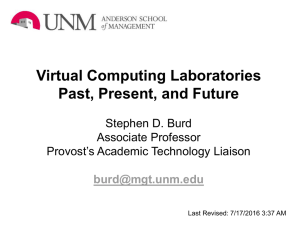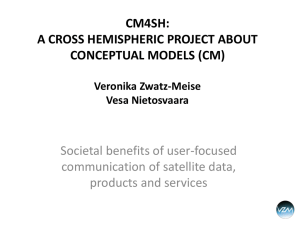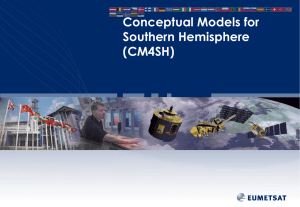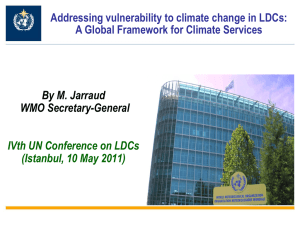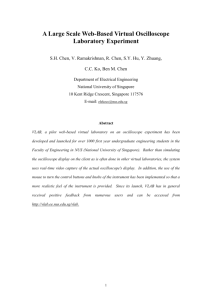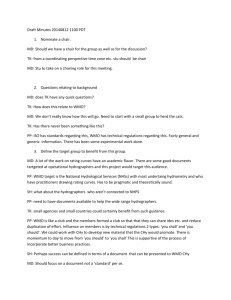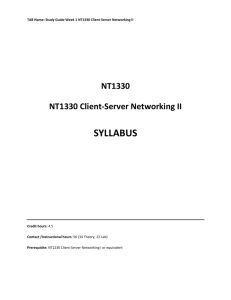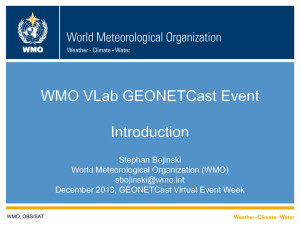VLMG-7_VLabStrategyDiscussion_Draft1
advertisement
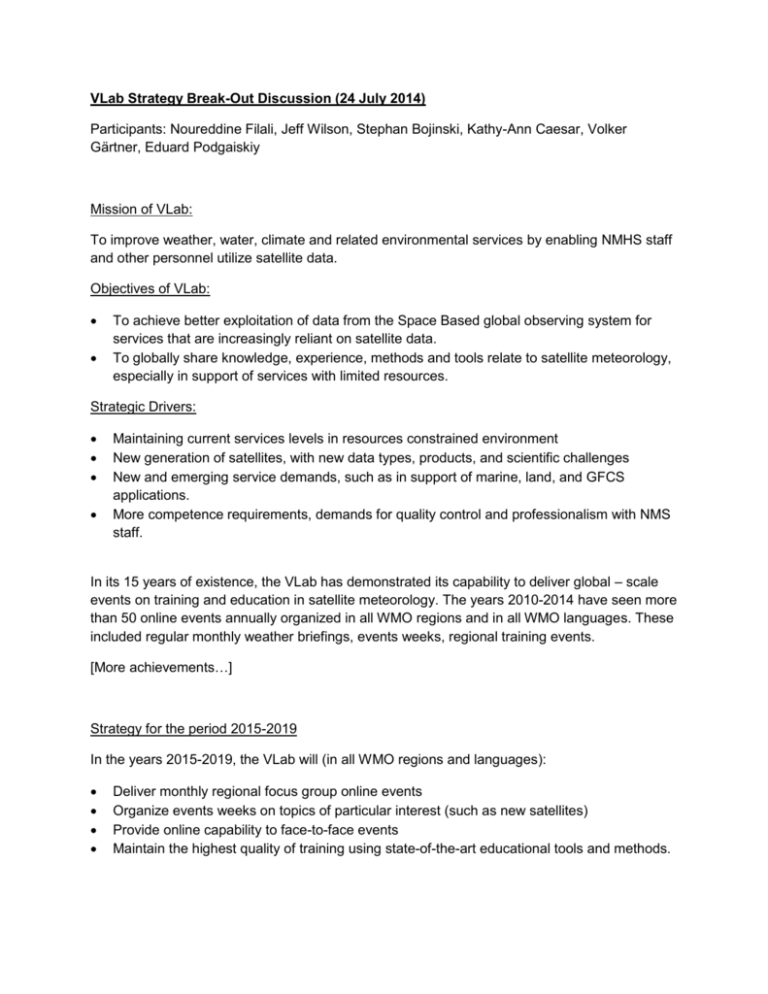
VLab Strategy Break-Out Discussion (24 July 2014) Participants: Noureddine Filali, Jeff Wilson, Stephan Bojinski, Kathy-Ann Caesar, Volker Gärtner, Eduard Podgaiskiy Mission of VLab: To improve weather, water, climate and related environmental services by enabling NMHS staff and other personnel utilize satellite data. Objectives of VLab: To achieve better exploitation of data from the Space Based global observing system for services that are increasingly reliant on satellite data. To globally share knowledge, experience, methods and tools relate to satellite meteorology, especially in support of services with limited resources. Strategic Drivers: Maintaining current services levels in resources constrained environment New generation of satellites, with new data types, products, and scientific challenges New and emerging service demands, such as in support of marine, land, and GFCS applications. More competence requirements, demands for quality control and professionalism with NMS staff. In its 15 years of existence, the VLab has demonstrated its capability to deliver global – scale events on training and education in satellite meteorology. The years 2010-2014 have seen more than 50 online events annually organized in all WMO regions and in all WMO languages. These included regular monthly weather briefings, events weeks, regional training events. [More achievements…] Strategy for the period 2015-2019 In the years 2015-2019, the VLab will (in all WMO regions and languages): Deliver monthly regional focus group online events Organize events weeks on topics of particular interest (such as new satellites) Provide online capability to face-to-face events Maintain the highest quality of training using state-of-the-art educational tools and methods. Through the experience collected in the coordinating and delivering online training, the VLab strives to meet the increasing demand by WMO members in the period 2015-1019. These will be in line with WMO key expected results WMO applications GFCS initial priority areas GEO SBAs [any selection?] It is imperative that the VLab adopt a more cohesive approach in developing and delivering training, with particular emphasis on national and Region specific demands and requirements. The VLab can reach every country in the world. To ensure quality of services, the VLab will place focus on continuous internal quality evaluations and controls. This includes both the expectations on the CoEs and on the the Satellite Operators in CGMS. [Stress multiple roles of VLab: training and capacity building; support to operations; presentations of research and new findings/methods] While providing training for weather forecasting, the VLab will engage strongly in the areas of: Climate monitoring and prediction Marine, Ocean and coastal monitoring Dust, ash and smoke monitoring Space weather VLab will exploit partnerships such as with COSPAR and CEOS WGCapD in areas of common or complementary interest. As a global virtual infrastructure , the VLab can provide education and training in other area of relevance to WMO Members. The virtual roundtable on upcoming aeronautical meteorological competencies was highly successful, with x participants from y countries. The VLab is an infrastructure sustained by contributing CoEs and Sat Operators, and a technical support function critical for the organization of online events and VLab coordination. The VLab is operational and requires continuing instructional and funding support through a dedicated WMO trust fund. Delivery of training will rely on: Online techniques Investments in bandwidth Offline delivery of training where appropriate (DVDs etc) Collaboration among CoEs
